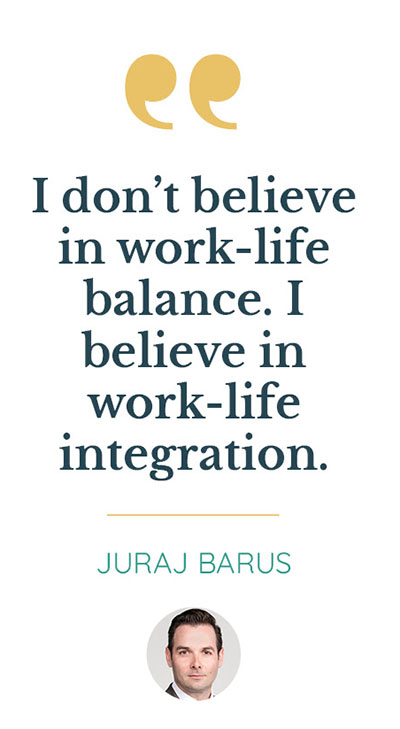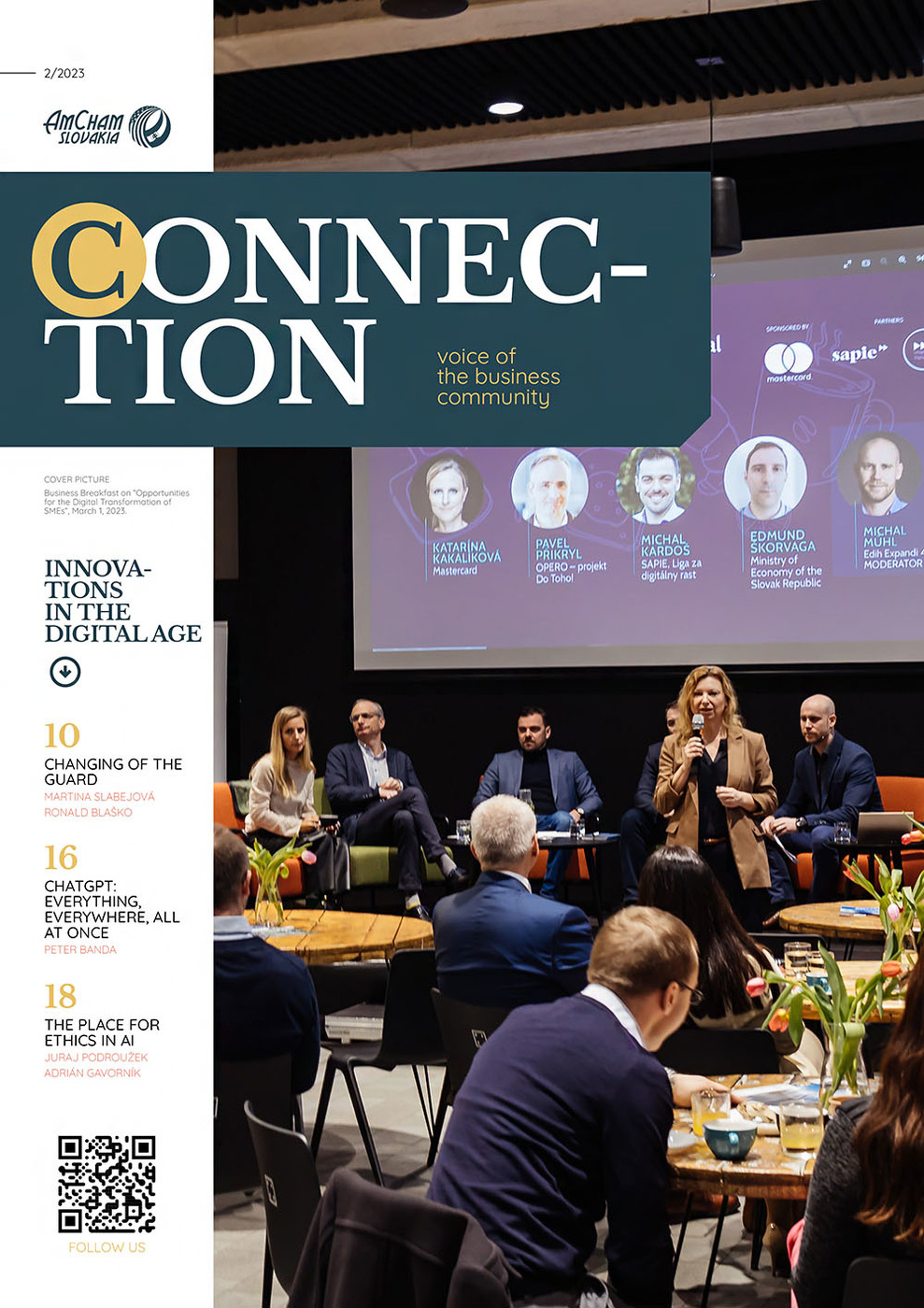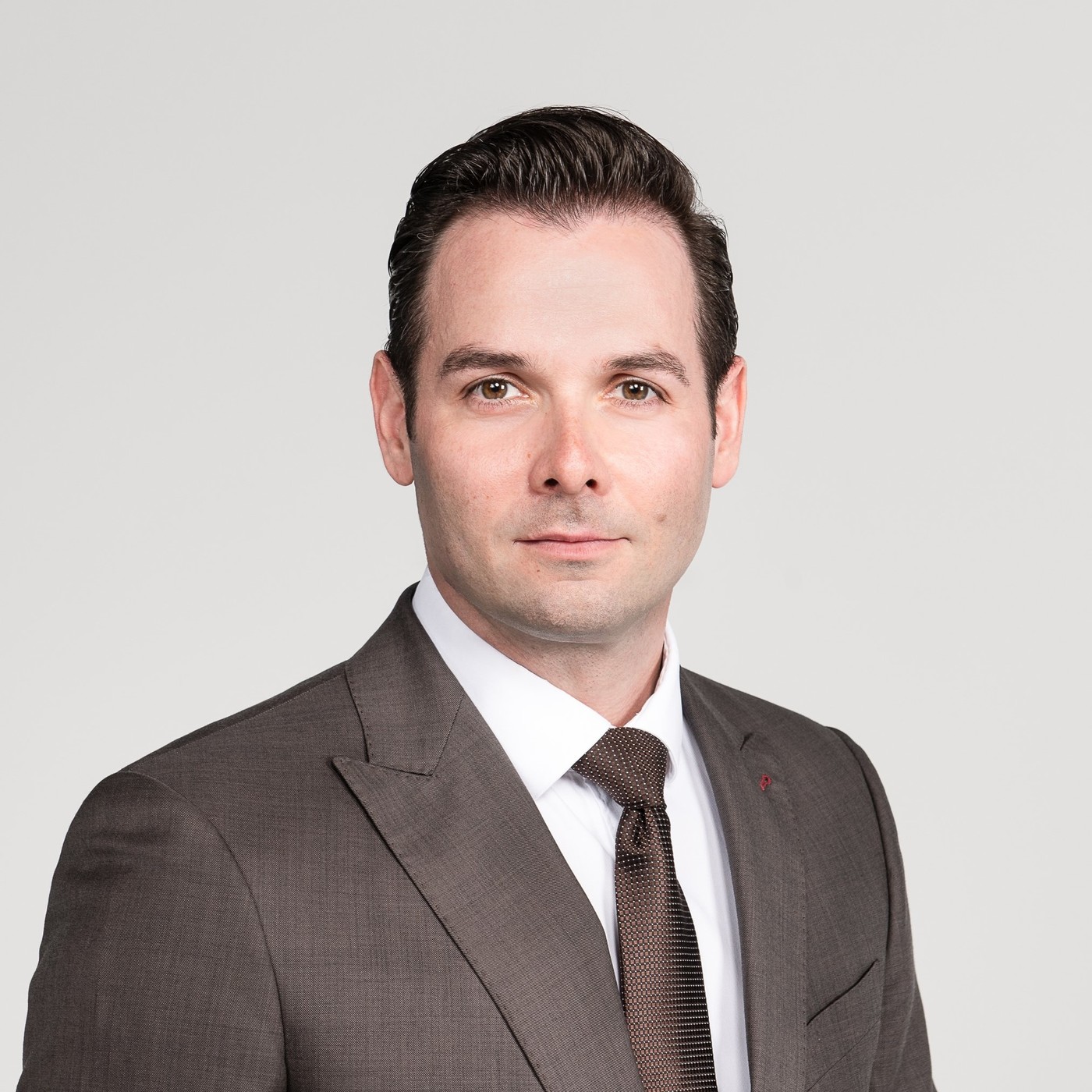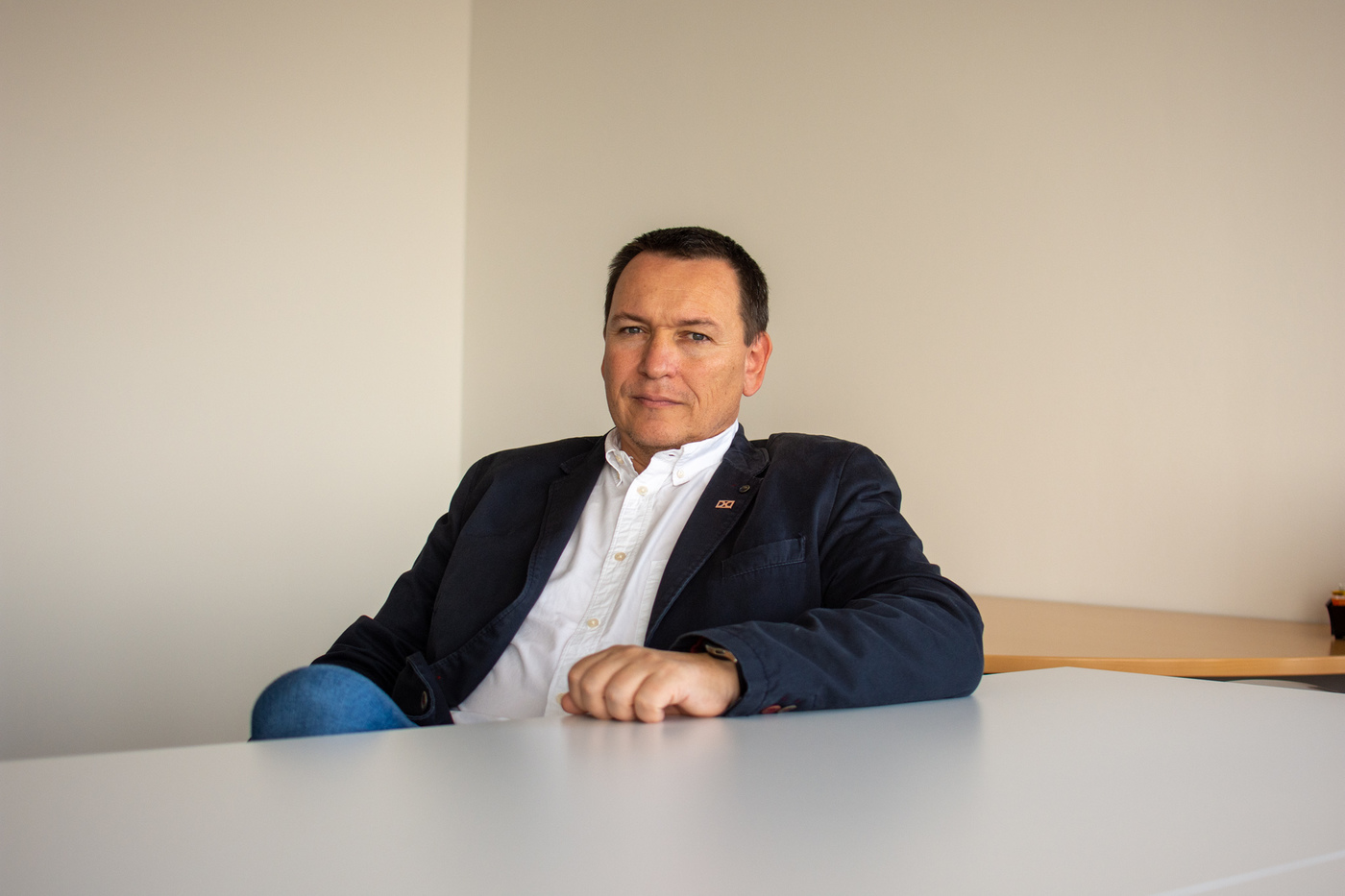How has the Covid-19 pandemic impacted your professional and personal life?
(PM) Covid has changed many things, and quite radically, both in my personal and professional life.
In my professional life I had to make decisions of a kind we’ve never done before and those brought us new and unknown risks in related to our employees and our business. When you are a leader, responsible for the employees and the business in normal times, it is fantastic. But in this situation our leadership decisions became responsible for people’s health and lives, and that added a new dimension to our job responsibility. I must admit it was quite challenging but, looking back, I’m happy we made the sometimes tough but right decisions over the past three years.
And in personal life? It was also a time of significant changes influencing the upcoming years. My wife did not renew her contract with the company she was working for in order to spend her time with our daughter, who was at a sensitive preschool age. Today I believe this was one of the best decisions for us as a family. On the other hand, I lost my father who passed away in the hospital during the pandemic, when visits were not allowed to protect the patients. We understood the reasons, but I have to say my personal experience was not convenient at all.
(JB) It has been an absolute game-changer for me. And perhaps this will surprise you, a positive one.
Were you able to identify any positive side effects or opportunities resulting from this situation?
(PM) Sure. We all know the motto “everything bad is good for something”. Three things.
As a team we were more collaborative, taking risky decisions but knowing we were helping each other and the company as well. In some aspects we became quicker at taking decisions and we speeded up the execution too. We gained invaluable experience how to communicate more effectively with our employees and be there for them when needed.
Secondly, we were able to adapt quickly to the new situation while still doing business in top quality for our clients. We delivered services helping them to succeed by transforming their business models and moving to the virtual environment.
Last but not least, was our continuous effort in social responsibility and volunteering. DXC Slovakia started a voluntary project in Slovakia to help schools launch online education, which, at that time, was impossible to achieve for hundreds of them on such a short notice. We helped 70 schools to use modern technologies enabling online education, provided special trainings for more than 200 teachers, thus reaching 25 000 students. This project finished in the top three at Via Bona awards.
 (JB) Interestingly enough, if I had read my answer two years back in Connection magazine, I would not agree at all. Back then, I saw more challenges than opportunities, but positives definitely prevailed in the end.
(JB) Interestingly enough, if I had read my answer two years back in Connection magazine, I would not agree at all. Back then, I saw more challenges than opportunities, but positives definitely prevailed in the end.
Each dramatic change takes something away but brings something new. Covid had not been an exception. The main positive change that Covid brought me was increased flexibility in both my personal and professional life.
People who learned how to get the most out of this situation switched gears to a higher speed level, and their learning curve and quality of life increased dramatically. On the other hand, there is a much bigger category of people that got used to doing less and working less, saying: I am ok with this. I don’t need more. Or simply prioritizing their comfort zone over anything else.
What I see is that society is divided into two groups with different working and life speed levels. On one side, you have people with a growth mindset and the desire to use their time and opportunities to the greatest extent. For example, I often hear that instead of having one full-time job, IT Consultants currently often have two to three jobs at once. Many people started their own business projects to fulfill their lifetime dreams, or to diversify their portfolio of activities. Some are utilizing the time to read and educate themselves. Others are learning languages, focusing on hobbies, or traveling, you name it.
Then you have the other category of people who learned how to do less during the Covid period. If employees are not in the office, I estimate that the contribution of the 100% remote work is at least 20% lower than that of a hybrid working model. Different factors are driving this change, but this might be a topic for another article. If you only stay at home, you communicate less with your peers, the number of hours spent on remote learning is not comparable with the speed of learning you can achieve with on-site workshops, and people tend to do only what is being asked of them, no more. Purely statistically speaking.
In the end, there will be two completely different groups of people, and the difference in knowledge, market value, and earnings of these groups will continue to be distinct. I see the split somewhere between 20% to 80%, meaning 20% utilizing their potential versus 80% seeking to stay in their comfort zone as much as possible, relocating to remote locations, spending less and less time on development, etc. The risk I see with the second category is to stay competitive in the market when their current job disappears because of automation or relocation to lower-cost countries.
What is the favorite part of your day and why?
 (PM) The start of the day and returning home. Those are the cherished moments, when we sit as a family, talking about our plans for the day or debriefing it, especially when we listen to the adventures of our first grader, who is discovering the beauty of learning.
(PM) The start of the day and returning home. Those are the cherished moments, when we sit as a family, talking about our plans for the day or debriefing it, especially when we listen to the adventures of our first grader, who is discovering the beauty of learning.
(JB) I wake up early, around 5AM, and the first two to three hours are the most productive hours of my day. I am more productive and can do cognitive activities better and more effectively in the morning.
Do you have any habits or routines that help you maintain your work-life balance and work well for you?
(PM) For me there are few. Meeting friends and my loved ones, skiing in the winter, riding the bicycle during the rest of the year, and discovering the world. Especially the last one is our family passion after being expats in the past.
(JB) We work to live, not the other way around [laughing]. At the same time, I must tell you I don’t believe in work-life balance. And I mean it in a good way. I believe in work-life integration.
When a child is born, parents do not have a balance in the first few months or even years to spend time equally on their hobbies, family, and friends. And that is natural. Their priority is the child, and they do what it takes to be good parents. When I have a big work project that is my priority, I focus on the result, and am willing to spend extra time to complete it.
At the same time, when the family or other personal responsibilities require more time, the work assignment needs to adjust accordingly. We in Clarios applied a 50/50 ratio for the hybrid work model. Right at the beginning of Covid, we analyzed our processes, proposed this model, and we do not plan to move away from it. People can adjust their activities according to their presence in the office when they need to interact with other colleagues versus individual work done from home. I personally appreciate most the fact that I can work from anywhere 50% of the time. It enables me to travel more with my wife and, besides work-related topics, also to enjoy different locations. I was not able to do that in such a frequency as I am able now.
What advice would you give to your 20-something-year old self?
(PM) If only such a possibility existed :-)
(JB) To travel more. I started working very early and patience was not my strength. I would definitely study abroad and use each summer for an internship, work & travel, or another similar opportunity. I love to travel. I like to get inspired by different cultures and mentalities and to see how things work abroad. I believe that traveling has the most accelerated learning speed, and you can tell when you meet a person whether they lived abroad and understand the bigger picture.
What are the parts of your work that still excite you and give you motivation?
(PM) Working with great and creative people is a big motivator for me, as well as new challenges and missions, which life in our company brings quite often.
(JB) I am a creator, and my motivation lies in creating something productive. Growing the organization, the skillset, and the abilities of the people I work with. I enjoy working with extended teams, and my way of working is, basically, managing business partnerships and interpersonal relationships. For me, good-quality relationships are one of the best values. People are changing jobs, departments, cities, even countries, but the relationships stay. And you never know who gets back to you after several years just because they remember working with you was a good experience.
If you had to make a career switch, in what other profession can you imagine yourself?
(PM) Microelectronics and the engineer path or a career as a doctor – that was my dilemma when I finished secondary school. Today I’d be most likely to choose a completely alternative career path, not available at that time, created by the recent technology advancement.
(JB) Business development of green energy. I like this industry. I believe it is the only solution to save our planet and to get disconnected from the Russian weaponization of fossil fuels. I want to contribute to this strategically important activity, and it is important to me personally that Clarios is leading the circular economy and green energy efforts in its business area.
Can you name three sources you have recently learned from or have inspired you the most?
(PM) Mission impossible. Sources of information today are much too broad to be limited to a few sources. But one source is irreplaceable: Curiosity and passion for subjects of your interest.
(JB) I like learning from Michal Novota and Filip Kvapil from Restartup and Viktor Kosticky. Michal and Filip for communication and leadership skills, Viktor for negotiation skills, and applying psychology in the business area.
What is your biggest fear for the generation of today’s children? What about the biggest hope?
(PM) One of the biggest challenges I see is the question how to prepare our children and young people for the times and technologies which are coming. My personal biggest hope is that humankind is wise enough to transform to thrive.
(JB) I am a positive person hoping for a positive future for the next generations. I would use the quote from Michael Hopf “Hard times create strong men. Strong men create good times. Good times create weak men. And, weak men create hard times.”
I wish for our next generation not to experience hard times like war or other ways of aggression in order to become a strong generation. I wish them strong ambitions, stamina, and the willingness to sacrifice to achieve big things. Not everything can be life-hacked, and there is not always a shortcut to reaching a big goal.
Peter Mrázik, Global Innovation Delivery Center Eastern Europe ITO&Cloud Leader, DXC Technology
Juraj Barus, Director, Global Business Services, Clarios




Follow us